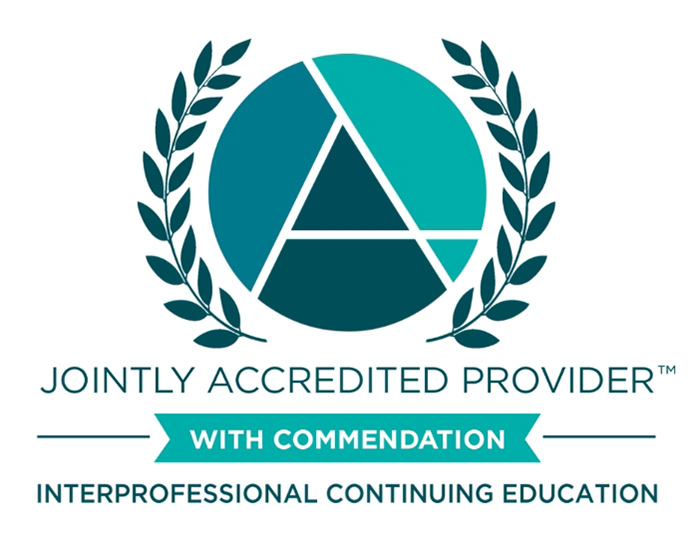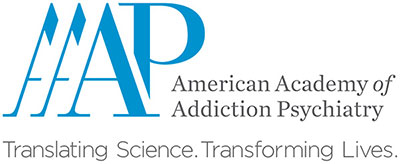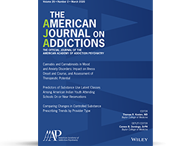Our Accreditation History
AAAP has been offering AMA PRA Category 1 CME credits™ to members attending our Annual Meeting since 1986. Throughout the years, AAAP continues to educate its members and successfully pursued ACCME accreditation in 2014. In 2016, AAAP received the highest level of ACCME accreditation, “Accreditation with Commendation.” At the same time, AAAP began securing federal grants intended to train the entire medical community on topics related to the treatment of co-occurring mental health disorders and substance use disorders. These grants encouraged us to establish a coalition comprised of primary care physicians, nurses, pharmacists, behavioral healthcare specialists, social workers and counsellors and to develop continuing education activities tailored for the entire healthcare team. In 2017, the AAAP Board of Directors recommended that AAAP research Joint Accreditation so that we can more effectively and efficiently offer interprofessional education designated for credit applicable to the health care team we are now educating. Joint Accreditation is a collaboration of the Accreditation Council for Continuing Medical Education (ACCME), the Accreditation Council for Pharmacy Education (ACPE), and the American Nurses Credentialing Center’s Accreditation Program (ANCC) allowing CE providers who educate the team to seek accreditation through a single, unified process and follow a unified set of standards. In 2019, AAAP was successful in receiving Joint Accreditation, the highest level of Joint Accreditation available at the time.

AAAP Receives Joint Accreditation with Commendation
In December 2024, AAAP received Joint Accreditation with Commendation, the highest level of Joint Accreditation currently offered. Only 174 organizations in the United States are currently Joint Accredited and only 33 have Joint Accreditation with Commendation, which is only awarded to providers who demonstrate compliance in all required criteria AND additional criteria aimed at elevating CE for the health care team and demonstrating the impact of their CE program on the health care team’s performance and the patients they serve.
By receiving Joint Accreditation with Commendation, AAAP demonstrated that AAAP:
- Offers high quality, impactful and independent CE for the health care team caring for people with substance use disorders and co-occurring psychiatric disorders.
- Delivers CE activities that are effectively designed and have changed the health care team’s abilities and performance.
- Supports its own CE team through continuing professional development opportunities and resources
- Engages in scholarship and research related to AAAP’s IPCE program.
- Integrates the use of health and practice data into the planning and presentation of its accredited CE
- Identifies and addresses factors beyond clinical care that affect the health of patients and integrates content on these factors in accredited IPCE and CE.
- Collaborates with other organizations to address population health issues.
- Demonstrates that its IPCE program improved not only the performance of the team but also community and patient health.
Learn more about Joint Accreditation.
Disclosures
It is AAAP’s policy to ensure balance, independence, objectivity, and scientific rigor in the educational programs designed by our committees and educational partners. In accordance with that policy, as well as standards set forth by the ACCME Standards for Integrity and Independence in Accredited Continuing Education, course planners, speakers, and content reviewers have been asked to disclose any relationship they have to companies whose primary business is producing, marketing, selling, re-selling, or distributing healthcare products used by or on patients, within the past 24 months of their involvement with an activity. AAAP then ensures that any relevant financial relationships are mitigated before the educational activity occurs. Such disclosure is not intended to suggest or condone bias in any presentation but is elicited to provide our learners with information that might be of potential importance to their evaluation of a given presentation.
In addition, faculty and content developers have been asked to list any off-label uses of pharmaceuticals and/or devices for investigational or non-FDA approved purposes that they plan to discuss.



